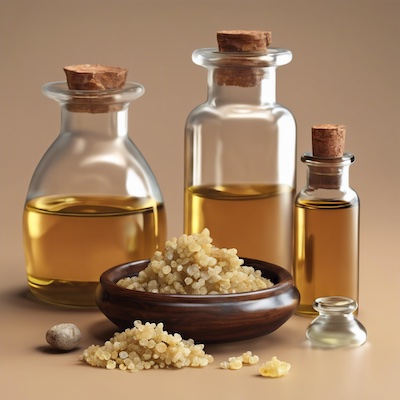If you have a chronic illness that causes pain in your joints, proactive self-care is crucial for managing your condition—and preventing the condition from managing you. Here, smart strategies that will help you ease symptoms and find support when you need it most.
Self-care for joint pain
Joint pain? From psoriatic arthritis to rheumatoid arthritis to fibromyalgia, there are many conditions that could be causing your aches and pains. And if you're experiencing joint pain, you're not alone: according to the Centers for Disease Control (CDC), tens of millions of Americans suffer from painful joints, and that number is likely on the rise. Researchers recently projected that by 2040, the total number of U.S. adults with arthritis will increase by49% to a whopping 78.4 million people—many of whom will be limited in their activities as a result of joint pain.
If you have a chronic illness that causes pain in your joints, proactive self-care is crucial for managing your condition—and preventing the condition from managing you. Here, smart strategies that will help you ease symptoms and find support when you need it most.
Start with your GP—and listen closely to their advice
You may be tempted to start self-treating your pain, but it's still important to make an appointment with your GP first. "People should be at least evaluated by their primary care doctor for all joint pains," says Anca D. Askanase, MD, MPH, clinical director of Columbia University Lupus Center and an associate professor of medicine in the division of rheumatology at Columbia University College of Physicians & Surgeons in New York City.
Your GP can help you pinpoint the exact cause of your pain, and if necessary, he or she might then refer you to a rheumatologist. "Sufferers of chronic joint pain need to keep in mind that partnering with their doc and being open to trial and error, combining modalities, including exercise and physical therapy, and accepting that all treatments are imperfect is the key to success [in managing that pain]," Dr. Askanase adds.
Hit the books (or your laptop)
Update the bookmarks bar on your Internet browser with tools and resources that can help you manage your symptoms on difficult days. The Arthritis Foundation offers exercise recommendations, tips for creating a personal pain management plan, a free Better Living Toolkit with condition-specific resources, and more. For your bookshelf, consider the Mayo Clinic Guide to Pain Relief ($30; mayoclinic.com), which includes treatment and management tips from the Mayo Clinic's Comprehensive Pain Rehabilitation Center.
Control your inflammation
There's a connection between inflammation and some (but not all) conditions that can cause joint pain. In the case of rheumatoid arthritis and psoriatic arthritis, for example, "control[ling] inflammation is the goal of treatment," says Dr. Askanase, although she notes that other pain management methods are usually used in addition to therapies aimed at controlling inflammation, such as non-steroidal anti-inflammatory drugs (NSAIDs). Adhering to a diet that's rich in inflammation-fighting foods may also help. These include oily fish that are high in omega-3 fatty acids (such as salmon), dark leafy greens, colorful veggies (think: tomatoes, peppers, and beets), low-fat dairy products, and whole grains.
Use a topical pain medication
If your pain occurs in joints that are close to the surface of the skin (such as your hands and knees), you might find some relief from topical meds that have active ingredients such as capsaicin(which reduces your nerve cells’ ability to send pain messages),salicylates, and counterirritants like menthol and camphor,which produce hot and cold sensations.
Heat up (or cool down)
Depending on the condition that's causing your joint pain, heat or cold treatments may help alleviate symptoms. For sore joints, try a heating pad, a hot soak in the tub, or a steamy shower. These are inexpensive but effective ways to relax muscles, and they can be particularly helpful for conditions that present "morning stiffness" of the joints, such as psoriatic arthritis and rheumatoid arthritis. An ice pack or cold bath may also help ease joint pain for some patients, since cold temperatures reduces swelling and dulls acute pain.
Get a good night’s sleep
No question about it: Getting plenty of shut-eye is essential for your health, and sleep deprivation can increase your risk of depression, obesity, diabetes, and more. But for people with chronic joint pain, getting a full night's sleep is easier said than done. To minimize nighttime discomfort, the Cleveland Clinic recommends making sure you're sleeping on the right mattress (for back, hip, and knee pain, that probably means a firm one) and choosing a pain reliever that will last you until morning. It's also important to maintain good sleep hygiene to keep your bedtime routine regular and restful. Try investing in a white noise machine, which can drown out distracting background sounds. And if you tend to run hot, cooling bed sheets or pillows may also help you sleep easy.
Stay active
While it can be challenging to simply get out of bed (much less hit the gym) on days you're experiencing joint pain, experts stress that gentle exercise can make a big difference in alleviating symptoms. Low-impact activities such as walking, cycling, and swimming help strengthen the muscles around the joints, which can be particularly beneficial for those with psoriatic arthritis, osteoarthritis, and rheumatoid arthritis.
Also important:Exercise helps you shed pounds and prevent weight gain, which can have a dramatic impact on your condition. Excess weight puts added pressure on your joints, which can aggravate existing symptoms. In a 2010 study published in the Annals of the Rheumatic Diseases, researchers found that weight loss reduced pain and low-grade inflammation levels in osteoarthritis patients.Speak to your doctor to make sure you're healthy enough to exercise and find out which types of workouts would be most beneficial for you.
Talk to a mental health professional
When the CDC analyzed 2014 data from the National Health Survey, they found that 56.3% of adults with serious psychological distress also had severe joint pain. While it should go without saying that severe joint pain can cause serious psychological distress,research has also suggested that beliefs about pain control and feelings of helplessness, emotional factors like anxiety and depression, and social support all play important roles in how we experience and adjust to pain. For those with persistent conditions like chronic joint pain, you may find it helpful to consult a pro who can help you develop pain-coping techniques.
Consider acupuncture
"Acupuncture can be a useful adjuvant for chronic joint pain management," says Dr. Askanase. In a 2012 report published in Archives of Internal Medicine,researchers reviewed the results of 29 studies involving nearly 18,000 participants,and found that acupuncture successfully helped alleviatesymptomsof four chronic pain conditions: back and neck pain, osteoarthritis, chronic headaches, and shoulder pain.
The researchers did note that the differences between "true" and "sham" acupuncture were "relatively modest." But still, acupuncture is a safe treatment that could be worthwhile for you. If you're interested in acupuncture, look for a practitioner with the professional initials DABMA (which means they've been certified by the American Board of Medical Acupuncture).
Build your support system
Don’t be shy about asking your doctor or local hospital about support groups for patients with chronic joint pain. Find community resources and events in your area with the Arthritis Foundation’s search tool, or consider calling a local chapter of the American Chronic Pain Association (ACPA). CreakyJoints, an online community for arthritis patients of all ages, also helps users find and list support groups. And if you have psoriatic arthritis, check out the National Psoriasis Foundation, which is home to TalkPsoriasis, the world’s largest online support group and discussion community for psoriasis and psoriatic arthritis patients.
Can’t find something near you? Create your own support group. The ACPA offers members a manual with how-to information on organizing and managing new chapters.
Source: health.com







